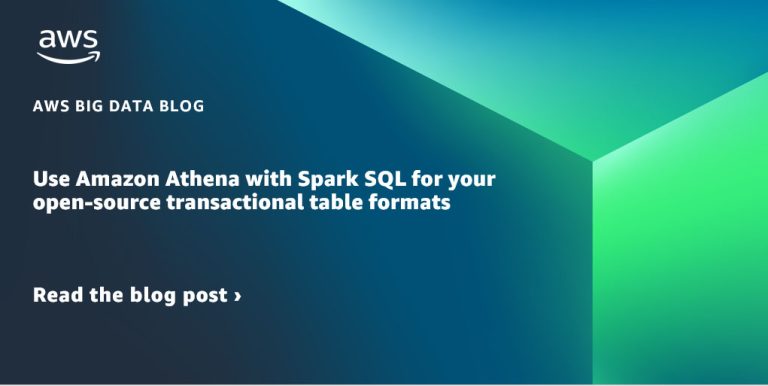
“`html
AWS-powered data lakes, supported by the unmatched availability of Amazon Simple Storage Service (Amazon S3), can handle the scale, agility, and flexibility required to combine different data and analytics approaches. As data lakes have grown in size and matured in usage, a significant amount of effort can be spent keeping the data consistent with business events. To ensure files are updated in a transactionally consistent manner, a growing number of customers are using open-source transactional table formats such as Apache Iceberg, Apache Hudi, and Linux Foundation Delta Lake that help you store data with high compression rates, natively interface with your applications and frameworks, and simplify incremental data processing in data lakes built on Amazon S3. These formats enable ACID (atomicity, consistency, isolation, durability) transactions, upserts, and deletes, and advanced features such as time travel and snapshots that were previously only available in data warehouses. Each storage format implements this functionality in slightly different ways; for a comparison, refer to Choosing an open table format for your transactional data lake on AWS.
In 2023, AWS announced general availability for Apache Iceberg, Apache Hudi, and Linux Foundation Delta Lake in Amazon Athena for Apache Spark, which removes the need to install a separate connector or associated dependencies and manage versions, and simplifies the configuration steps required to use these frameworks.
In this post, we show you how to use Spark SQL in Amazon Athena notebooks and work with Iceberg, Hudi, and Delta Lake table formats. We demonstrate common operations such as creating databases and tables, inserting data into the tables, querying data, and looking at snapshots of the tables in Amazon S3 using Spark SQL in Athena.
Prerequisites
Complete the following prerequisites:
Download and import example notebooks from Amazon S3
To follow along, download the notebooks discussed in this post from the following locations:
After you download the notebooks, import them into your Athena Spark environment by following the To import a notebook section in Managing notebook files.
Navigate to specific Open Table Format section
If you are interested in Iceberg table format, navigate to Working with Apache Iceberg tables section.
If you are interested in Hudi table format, navigate to Working with Apache Hudi tables section.
If you are interested in Delta Lake table format, navigate to Working with Linux foundation Delta Lake tables section.
Working with Apache Iceberg tables
When using Spark notebooks in Athena, you can run SQL queries directly without having to use PySpark. We do this by using cell magics, which are special headers in a notebook cell that change the cell’s behavior. For SQL, we can add the %%sql magic, which will interpret the entire cell contents as a SQL statement to be run on Athena.
In this section, we show how you can use SQL on Apache Spark for Athena to create, analyze, and manage Apache Iceberg tables.
Set up a notebook session
In order to use Apache Iceberg in Athena, while creating or editing a session, select the Apache Iceberg option by expanding the Apache Spark properties section. It will pre-populate the properties as shown in the following screenshot.

For steps, see Editing session details or Creating your own notebook.
The code used in this section is available in the SparkSQL_iceberg.ipynb file to follow along.
Create a database and Iceberg table
First, we create a database in the AWS Glue Data… (truncated)…
 Raj Devnath is a Product Manager at AWS on Amazon Athena. He is passionate about building products customers love and helping customers extract value from their data. His background is in delivering solutions for multiple end markets, such as finance, retail, smart buildings, home automation, and data communication systems.
Raj Devnath is a Product Manager at AWS on Amazon Athena. He is passionate about building products customers love and helping customers extract value from their data. His background is in delivering solutions for multiple end markets, such as finance, retail, smart buildings, home automation, and data communication systems.
“`